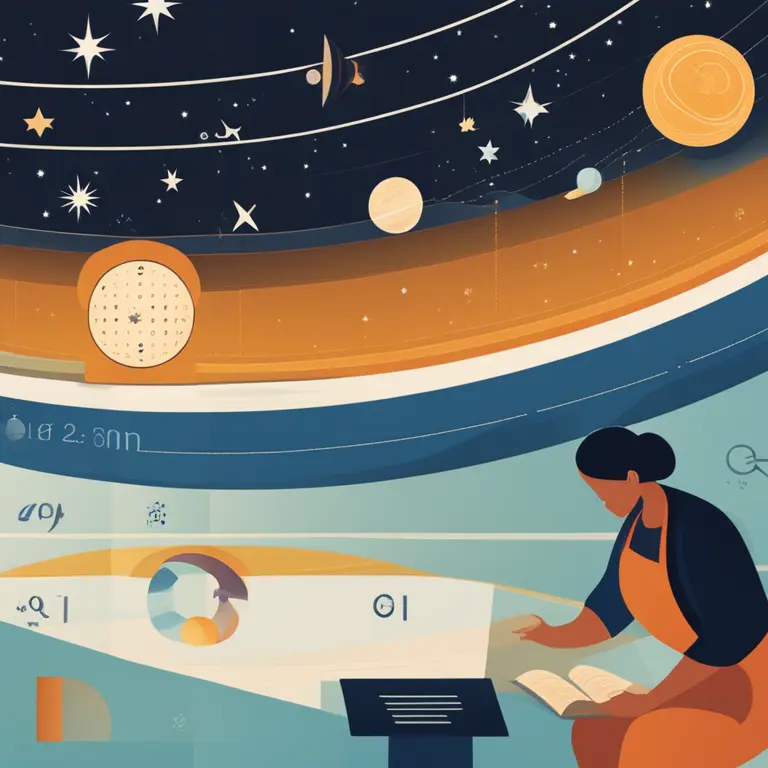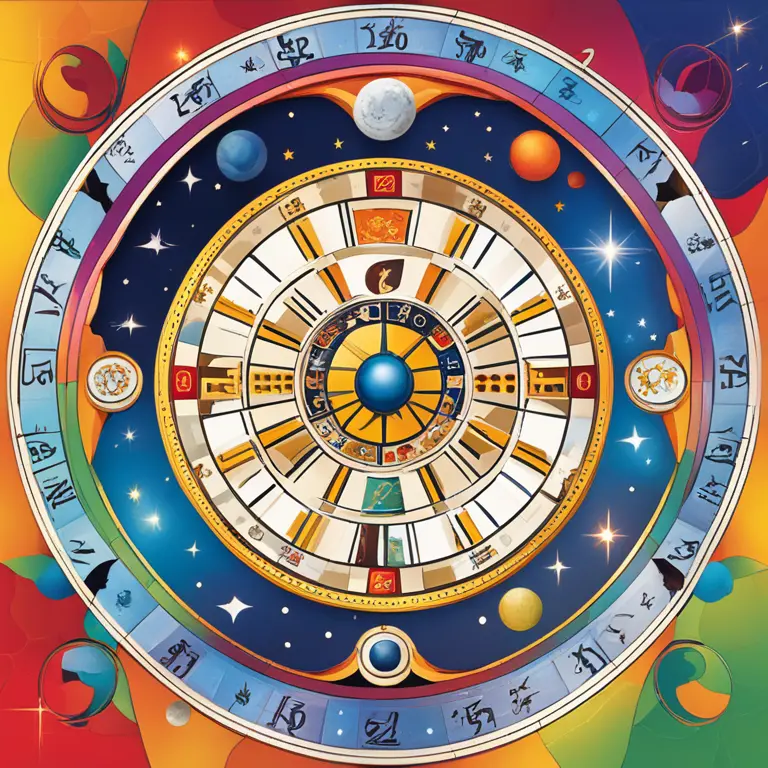
The Reality of Astrology: A Modern Perspective
Delve into the world of astrology and its tangible connection to our lives. Discover the persuasive arguments that showcase the relevance of this ancient practice in the modern era.
article by Priya Deshmukh
Astrological Foundations
Astrology has traversed time, evolving in complexity and application. Often misunderstood as mere fortune telling, it is a profound synthesis of astronomical data and human experience. Astrologers parse the skies, drawing upon the positions of stars and planets, articulating the potential influence these celestial bodies have on human affairs. Unlike the simple horoscopes seen in daily publications, a true astrological analysis provides personalized insight derived from rigorous chart calculations, reflecting the sky at one's birth.

Scientific Underpinnings
Modern astrology appreciates the cosmos's grandeur through a lens that includes scientific understanding. While mainstream science is often skeptical, advocates cite the cosmic resonance theory, which suggests that cosmic events resonate through various forms of energy, potentially affecting human lives. Technological advancements in astronomy now allow for extraordinarily precise charting, enabling astrologers to make more informed interpretations than ever before.

Psychological Correlations
Astrology interlaces with various aspects of human psychology. Carl Jung, a prominent psychiatrist, recognized synchronicity—the principle that two events connected by meaning, rather than causality, can reveal deep insight. Astrology, in this sense, offers a framework for self-reflection, with the symbolic language of the heavens providing a mirror to the psyche. The personality delineations imparted by astrological archetypes grant individuals a vocabulary for inner exploration.

Historical and Cultural Relevance
Throughout history, astrology has maintained its influence across different cultures, adapting and persisting through centuries. In 2024, this is no less true, with astrology enjoying a renaissance among those seeking spirituality beyond traditional structures. There's a growing recognition of the art's historical significance and its enduring cultural impact, guiding personal and societal development.

Technological Synergy
The digital age has revolutionized astrology. Access to sophisticated software allows for instant astrological charting based on precise birth data. This development enables tailored insights, fostering a rejuvenated public interest. The steady stream of apps and online platforms now brings astrology into the daily routines of countless individuals, further legitimizing its practice.
Celestial Events and Data Accuracy
Astrology's resilience in the 21st century owes much to improved access to astronomical events. Even as scientists prepare for the exploration of Mars and beyond in 2024, astrologers incorporate these discoveries into their interpretations. Every celestial occurrence, like solar eclipses or planetary transits, is meticulously cataloged, fueling astrology with a flood of data points for correlation with earthly trends.
Embracing Diverse Perspectives
Today's society encourages an openness to diverse worldviews, allowing astrology to find a receptive audience. As a fusion of art, science, and spirituality, it presents an alternative path to understanding life's mysteries. While it may not convince the staunchest skeptics, the anecdotal and experiential evidence amassed by countless individuals worldwide keeps astrology firmly rooted in contemporary conversation.
Published: 2/5/2024
Modified: 2/5/2024
More predictions
Come back here soon to learn more about yourself and your future


Calculate Your Sun, Moon, Rising Sign Chart
Discover the insights of your birth chart: learn about your sun, moon, and rising signs to illuminate your astrological makeup.


Leo Zodiac Sign Insights: Traits, Love, and Destiny
Delve into the spirited world of Leo: learn about their bold traits, love compatibility, and 2024 forecast in this comprehensive guide.


From Zodiac Signs to Tarot Cards: A Celestial Guide
Connect the cosmic dots between your zodiac sign and the tarot with this insightful guide into the esoteric relationship of astrology and tarot card readings.